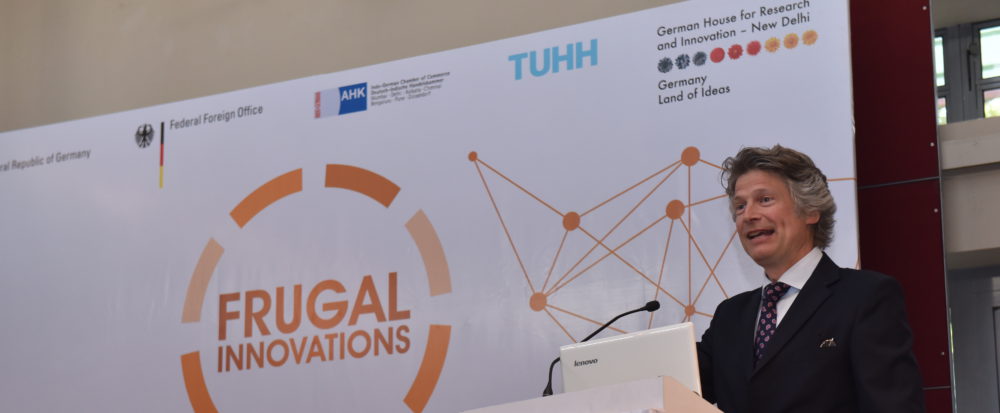On July 7, the Institute for Technology and Innovation Management (TIM), via its Center for Frugal Innovation, co-organized a special track on the theme of “Frugal Innovation and Digitalization: Crossing Boundaries and Creating Impact” at the recently concluded R&D Management Conference 2021 (“RADMA”). RADMA took place in an online format in 2021 after its postponement in the previous year due to COVID19 related disruptions.

The track, which was originally proposed for 2020 was reactivated and fresh papers were invited from the scholarly community. A total of eight papers were accepted for presentation after a peer-review process. The following two papers with (co-)authorship of TIM scholars were presented at the conference:
(1) Morimura, Fumikazu / Tiwari, Rajnish / Herstatt, Cornelius: “Does frugal innovation matter in the COVID-19 crisis? An investigating into the impact on consumer resistance to home energy management system in Japan” (collaborative research with the University of Kobe, Prof. Morimura from the University of Kobe presented the paper).
(2) Tiwari, Rajnish / Buse, Stephan: “Promoting Creativity, Innovation and Entrepreneurship with Frugal Means: An Investigation into the Role of Digital Transformation” (results drawn from the study conducted under the VISION project, presented by Dr. R. Tiwari).

This track was organized in a cross-institutional and cross-country collaborative project by Suchit Ahuja (Concordia University, Canada), Rajnish Tiwari (Hamburg University of Technology, Germany) and Stephanie Cadeddu (University of Montréal, Canada). The track was very well attended and led to insightful discussions.
Here are some slides used by Rajnish Tiwari for his opening remarks at the session. The tack was organized in partnership with OpenInnoTrain.
